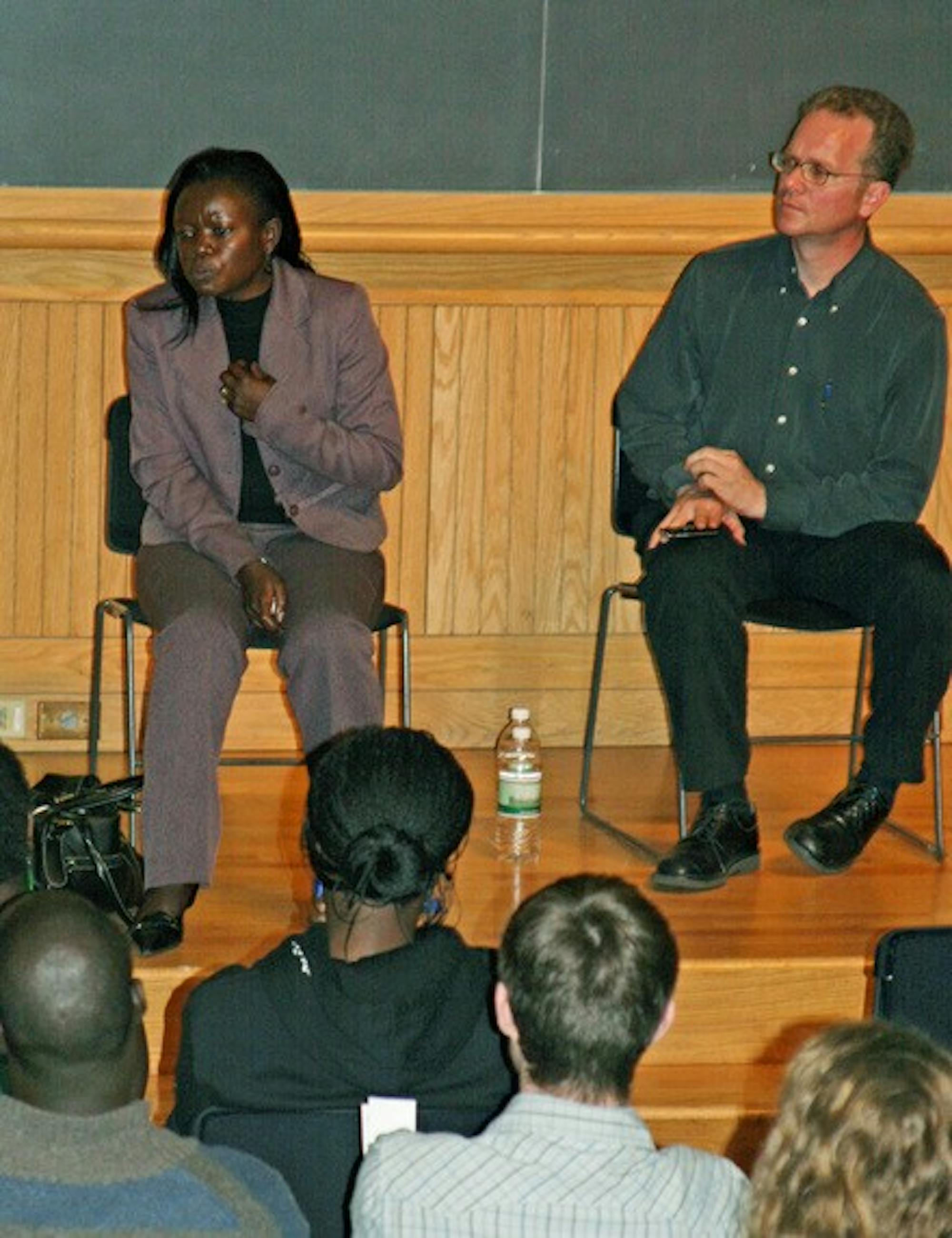Were was diagnosed with HIV in 1991 after her husband died from AIDS. She described her life after the diagnosis as a "more than difficult experience." The cultural customs in Uganda dictated that her husband's parents had the right to seize her property and take custody of her two young children. She fought back and was reunited with her daughters several weeks later, but she continued to struggle with the social stigma of her disease.
Were said that her personal challenges made her realize the larger issues of being a woman in Africa.
"I decided to stand up for the rights of all other women in my situation," Were said. More than 70 percent of AIDS victims worldwide live in Africa, and the majority of them are women. In 1993, Were co-founded the National Community of Women Living with HIV/AIDS in Uganda, an organization committed to providing services and support to HIV-positive women. She has worked with the organization ever since, and has been a vocal critic of the Ugandan government's abstinence until marriage program and a supporter of evidence-based HIV prevention programs.
Recently, she has moved to working more at the global level and has addressed many major government bodies.
When asked by an audience member what students could do to improve the global situation, Were said that students could make a difference through political activism and encouraged students to focus on the prominent candidates in the 2008 presidential race.
"Engage with the candidates when they come speak to you," Were said. "You must ask them what they are going to do about the AIDS problem and encourage them to commit to a strategy."
Were and other activists have asked many candidates to sign the Presidential Pledge for Leadership on Global AIDS and Poverty. The pledge stipulates that the United States commit $50 billion to the global fight against HIV/AIDS by 2013 and support evidence-based HIV/aids prevention policies. Although they have contacted all major candidates, only Gov. Bill Richardson of New Mexico has signed the pledge. Sen. Barack Obama, D-Ill., and John Edwards have indicated that they may sign it in the near future.
Organizers of the event gave audience members copies of a short speech urging support for the pledge and asked them to read it over the phone to members of the Hillary Clinton Campaign in New Hampshire.
"We're troubled that this issue is not coming up in debates," David Bryden, spokesperson for the Global AIDS Alliance Fund, said.
The GAAF, as well as the New Hampshire Fights AIDS Project, organized Were's visit to Dartmouth, working with Rachel Strohm '08, secretary of Students For Africa.
The event was the first of four in a series about global health organized by East Wheelock Fellows Pascaline Dupas and Kudzai Takavarasha as part of East Wheelock Cluster programming. Dupas said that she was pleased to see that the forum was filled beyond capacity and noted that she recognized a few East Wheelock residents in the audience in addition to many students not residing in the cluster.
Students for Africa, Dartmouth Coalition for Global Health and the Nathan Smith Society also sponsored the event.




